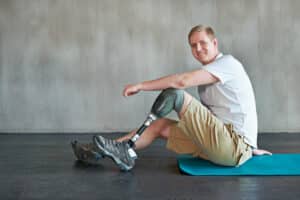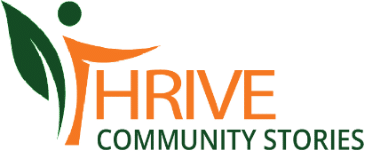Dr. Szu-Ping Lee at the Department of Physical Therapy, University of Nevada, Las Vegas
 How do individuals with lower limb loss benefit from peer-support after their amputation?
How do individuals with lower limb loss benefit from peer-support after their amputation?
What do support group members most like about peer support?
In addition to emotional support, what are some other advantages to receiving peer support?
If you are member of an amputee peer-support group or you are considering joining one, you may have asked these questions. A team of rehabilitation experts, two of whom are support group leaders, recently published a research study on this topic. The researchers surveyed members of 169 peer-support groups both in person and online, from 44 states across the United States. The team’s data revealed the following:
- More than half (56%) of the individuals surveyed learned about amputee peer-support programs from healthcare providers. This included their physicians, physical therapists, occupational therapists, nurses, and representatives from prosthetic companies. Overwhelmingly, 94% of the survey respondents said the most helpful times to receive peer-support were right after surgery and during rehabilitation. Nearly all current support group members recommended others with limb loss or limb difference to seek out peer support and/or join an amputee support group.
- Most of the support group members surveyed meet once a month. Not including the COVID-19 related restrictions which occurred during the study period, the most common reasons for not attending group activities were scheduling conflicts (21%), lack of transportation (9%) or not having a group nearby (9%).
- When asked what individuals enjoyed the most about their peer-support experience, the responses most mentioned included companionship, helping others, and gaining information on ways to cope with amputation. More than 80% of the respondents felt that their support group involvement gave them an opportunity to help others. They stated that they enjoyed helping others even when they didn’t receive anything in return. These acts are related to their enjoyment of continuing to participate in support group activities.
- In addition to the emotional support, respondents who received peer-support indicated a higher mobility than those who did not receive peer-support after their amputation. The respondent’s mobility level refers to their ability to walk and do other activities of daily living (shopping, walking/hiking with friends).
In the research team’s experience as both clinicians and support group leaders, not all patients are initially interested in joining a support group after their amputation. Many people have preconceptions that support groups are for folks to get together to whine and complain about their limb loss and how their lives have been negatively affected. This is often perceived as not useful. This study showed that most participants of amputee peer-support programs had a positive experience. They considered the support group a helpful source of both information as well as emotional support following amputation. Offering members a strong sense of belonging and an opportunity to help others are valuable reasons for them to continue to engage in support group activities. In fact, it was discovered that most long-term support group participants gain a genuine sense of purpose when sharing their experiences with newer amputees. This also extends to support group members sharing their stories with physical therapists or other healthcare students to help them better understand amputation.
Lastly, this study established that involvement in peer-support appears to benefit physical recovery after limb loss. The physical benefits included greater confidence with mobility and increased participation in a wider range of activities. The researchers further suggested that promoting access to peer-support and developing peer-based rehabilitation programs may be key ways to maximize the rehabilitation outcomes for individuals following lower limb loss.
This study “Utilization and Perception of Peer-Support After Lower Limb Loss in the United States: Potential Benefits on Mobility Outcomes” was published January 2024 in the Archives of Physical Medicine and Rehabilitation. Questions and comments can be sent to Dr. Szu-Ping Lee at the Department of Physical Therapy, University of Nevada, Las Vegas (szu-ping.lee@unlv.edu).
The Amputee Coalition offers both in-person support groups and virtual support groups in each time zone.

